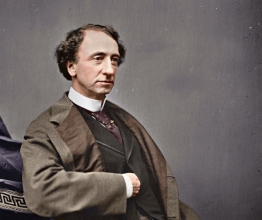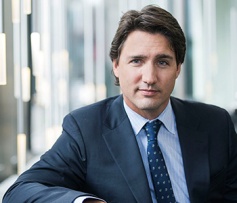Canada is a conversation. When confronting troubles visited upon us, or of our own making, Canadians reach not for a gun but a gavel. We talk it out. Every leadership race and election, every new bill, public initiative, or staggering crisis, and every table pounding in the House of Commons or at the local Tim’s is another element of that conversation. And when we’re talking, we’re always talking about power. So, let’s talk.
Political power touches us all. Positively expressed, it offers a vehicle through which we are collectively encouraged and enabled to act for the common good. Power matters and so, it matters who has it.
Our founders understood. In 1864, they met in Charlottetown and Quebec City and talked their way into a country. From Britain, came the ideas of a limited monarchy and parliamentary democracy. From the United States, they took a written constitution and a federal state, one comprised of a central government and provinces. This is where the real talking about power began.
John A. Macdonald led the way in arguing that while the American Constitution was brilliant in its conception, the fact that the United States was, at that moment, butchering itself in Civil War, demonstrated its appalling failure in practice. The Confederation delegates stood the American system on its head. Macdonald explained that Canada would reverse the “primary error” of the United States, “by strengthening the general government and conferring on the provincial bodies only such powers as may be required for local purposes.”

(Photo: Canadian Colour)
The provinces were given only municipal-like areas of responsibility and limited ability to raise revenue. The federal government, on the other hand, was afforded the major powers relating to sovereignty including trade, the military, post office, criminal law, currency, and banking. Unlike the United States where, until 1913, the states appointed Senators, the prime minister would populate our upper chamber. The prime minister would also appoint Lieutenant Governors who approved provincial bills while sending questionable ones to the federal cabinet, which could disallow them. Anything the constitution left out or that came up later, like airports, would go automatically to the federal government.
Throughout Canada’s 150-year conversation, provinces have worked to overturn our founders’ vision and shift power to themselves. An example is the decades-long provincial demand for greater power that sabotaged repeated federal efforts to earn greater independence by gaining control of our constitution. In standing up for what they believed was best for their province, too many premiers betrayed and undermined the very concept of Canada while dividing Canadians against themselves.
This is not to say that premiers are not patriots and provinces don’t matter. Of course they are and of course they do. But it was successive federal governments that fought to maintain our founders’ vision. Provinces were cajoled and dragged along as the federal government led the building of Canada through projects like the trans-continental railway, St. Lawrence Seaway, and the TransCanada Highway. The federal government needled, nudged, and negotiated for Canadians in creating national policies such as pensions and health care. Federal governments rallied our response to emergencies such as global wars, the Great Depression, and the FLQ Crisis. The federal government spoke for Canadian values whether reflected as peacekeepers or climate change leaders.
Ignore whether you like or dislike our current prime minister, or his policies, but grant that Mr. Trudeau’s tour a few months ago indicated his understanding that Canada is indeed a conversation. He is also demonstrating that he is the personification of Sir John’s vision. He gathered the premiers and then led the revamping of pensions, unemployment insurance, and health care. He told the provinces that we will combat climate change as a nation and that they will step in line. His government organized a national emergency response to the Fort McMurray wildfires.

We have been at our best when the power that our founders afforded the federal government was effectively employed. We have gone off the rails when firewall letters, referendums, and power squabbles have attempted to distort that vision. We are better when we consider ourselves not as of a particular province but more broadly, as Canadians first, stronger in the complexity of our citizenship.
Every time you hear our prime minister speak, listen carefully for a hint of a Scottish burr, for you’re hearing Sir John’s echo.
If you enjoyed this column, please send it to others and perhaps even explore my full argument which is in my latest book, published just two weeks ago, and called, perhaps unsurprisingly, Sir John’s Echo. It’s available at bookstores, Amazon, and here through Chapters https://www.chapters.indigo.ca/en-ca/books/sir-johns-echo-speaking-for/9781459738157-item.html
Hi John. Great article but you repeat one paragragh.
LikeLike
I fixed it. Thank you.
LikeLike
Fun read once again. Thanks. I’m curious – wasn’t what was afforded the provinces in power over education and other more ‘local’ authority a much more significant portion of the power to be divided in 1867? Did they really think the continued centralization of authority would go unchecked in-perpetuity? It’d be a fun study to look across the representatives of different provinces joining Confederation and assess their perception, within context, of the desired balance between provincial and federal power. A lot has changed since then – and as you point out those new jurisdictions default to the federal level.
LikeLike
Good thoughts. If Macdonald and many of the other founders had their way there would have been no provinces at all. He compromised but ensured that they would be afforded little significant power. Power over certain things, like resources, for instance, have changed a great deal since then and changed the power balance. Everything I read in research tells me that Sir John really believed the federal government would remain the dominant power because of all the elements in the constitution that made it so in 1867.
LikeLike